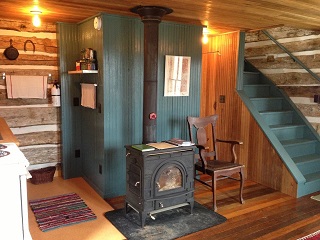From Guest Blogger Emily Folk: Six Reasons to Update to an Energy-Efficient HVAC System This Winter

Humans have been able to adapt to all kinds of different weather conditions. In the summer, we have air conditioning to keep us cool. In the winter, we have furnaces to keep us warm. It’s a luxury to have this wonderful equipment to keep our houses at ideal temperatures no matter what time of year it is. Ensuring this equipment is running properly will help your home be energy-efficient.
Having the energy-efficient appliances in your home doesn’t only help keep your bills in check, it also helps the environment. Producing the energy and electricity to run your household appliances impacts the environment by emitting CO2 into the atmosphere or by using nonrenewable resources. However, since HVAC systems are probably the technology you have to keep you warm this winter, it’s best to keep them in top condition to make them efficient and effective. Below are some reasons to update to an energy-efficient HVAC system this winter.
1. Save Money
You want to save money, right? Well, one of the best ways to do that is to install an energy-efficient HVAC system. With the advancement of technology, the newer models can save thousands of dollars in fuel costs because their annual fuel utilization efficiency has improved. That means they use less fuel than their older counterparts, which helps both you and the environment.
Not all energy-efficient HVAC systems are the same, and there are a lot of details and questions you should ask before buying a new one, including whether or not the system is explosion-proof. Knowing this will ensure you are getting the safest and most effective unit possible to keep your family warm.
2. You Can Get a Programmable Thermostat
One of the biggest wasters of energy is heating or cooling a house when no one is around. To reduce the waste and lower your bill, most new HVAC systems can work with a programmable thermostat so you can control when and what temperature your house is at when you’re at home and when you’re away.
3. Older Systems Are Harder to Repair
As technology advances, older models are left behind and forgotten, which means that if something goes wrong with your unit, you might not be able to find the parts to repair it. Even if you can find the parts, they might be ridiculously expensive. If you’re going to pay a lot of money to repair an old, outdated system, you might consider looking into a new system — the cost might be less than you expect.
4. Improved Air Quality Distribution
If the air in your home isn’t high quality, it could make you sick. Older units can have mold and mildew problems or circulate allergens throughout your home, leading to respiratory illnesses, headaches or fatigue. Even if you’ve changed the filters and maintained your older system, there may be substances you can’t get rid of. Newer units have advanced to allow air to move through them without building up harmful substances that could potentially make you sick.
5. Newer HVAC Systems Last Longer
The advancement of technology means new HVAC systems don’t turn on and off as much as their older counterparts, which means less wear and tear on the components. If properly maintained, new units can run longer and more efficiently than older ones.
6. They Are Quieter
Again, technology has advanced new HVAC systems to run smoothly and quietly so you don’t have to hear them. You’ll feel the heat without the unwanted noises and distractions.
Being able to heat your home in the winter and cool it in the summer is a luxury that is enjoyed by many. Older, less efficient HVAC systems can impact you and your family’s health, as well as the environment. By upgrading to a new, energy-efficient model, you are doing yourself and the world a favor.
